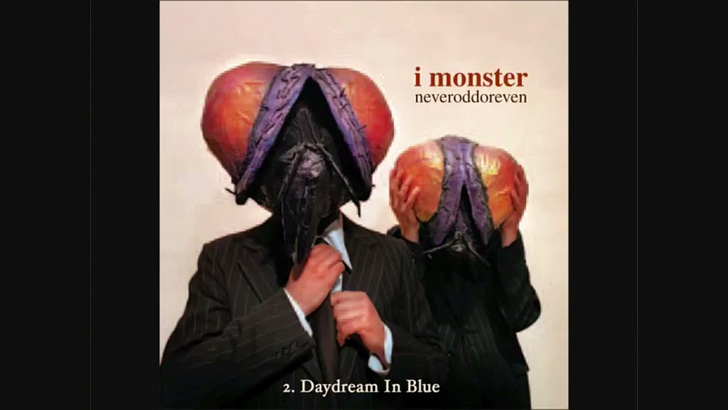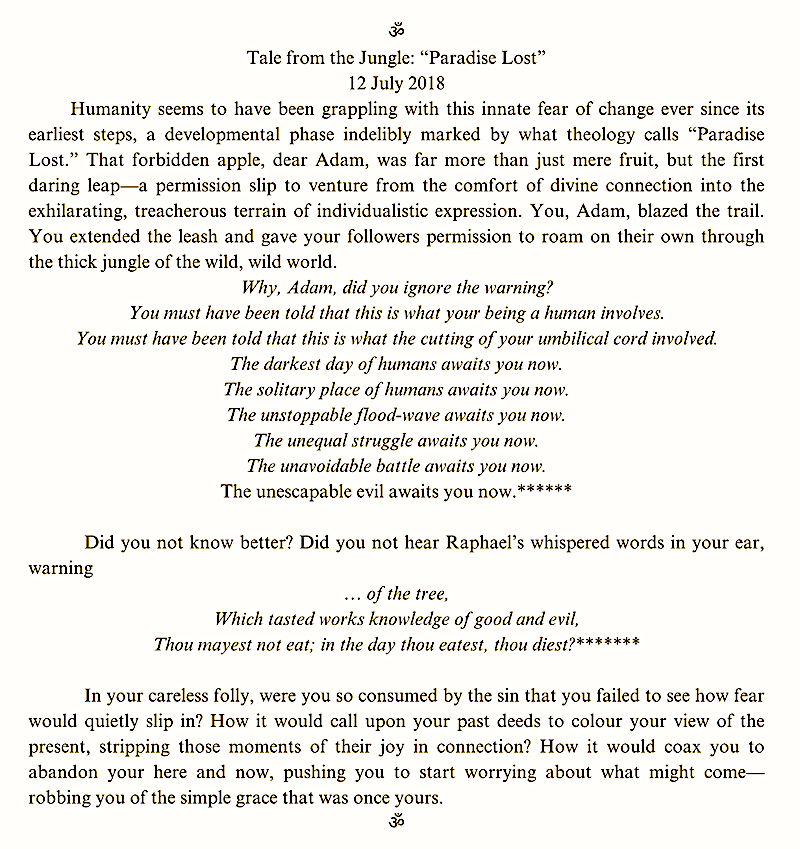A Delicate Coil of a Honeysuckle Weaving Its Way Through the Fire of Suns and the Bite of Winter Frost
Daydreaming in Blue on a Yogyakarta Maguwo—Surabaya Gubeng Morning Train: Part Two
The Music is by:
I Monster, an English electronic music duo, Dean Honer and Jarrod Gosling, from Sheffield, the UK.
Kid Francescoli (Mathieu Hocine), a French musician and producer from Marseille.
Elli Eli & Rarrito San, probably from Sweden.
With my rented pillow between the window and my head, and with jasmine tea in hand, I’ve been gazing out at East Java (Java Timur) for over an hour now. At one point it just hit me—translate East Timor, one of the youngest countries on the planet, and you get East East. As opposed to what? To West East?* I take another sip of my now lukewarm tea, the glow of countless Samsungs illuminating the sea of Android operators around me. A pang of dread tugs at my gut, a bleak premonition for humanity’s future, but then a whimsical thought of a beanstalk softens the gloom—tales always find a way to climb higher.
Maybe at this very moment my fellow travellers are instinctively playing their part in lifting this spiraling beanstalk to the next level of its honeysuckled, clockwise ascent. Perhaps they’ve already made their choice “to be part of the data flow, even if that means giving up their privacy, their autonomy or even their individuality”***? The busy beavers may be laying the groundwork for the next cycle, driven by a purpose they scarcely pause to question.
My first instinct is to resist the thought, because shouldn’t they be reading Tolstoy instead of endlessly scrolling, swiping and clicking their screens? But then again, why should the next cycle rest on the combination of twenty-some letters inked onto sheets of cellulose? It may be something else entirely: something... collective, interconnected, and unsettlingly unfamiliar. A force that might even abandon the pursuit of individual expression altogether.
Predicting the future has often proven to be a fool’s errand. Consider Sir William Preece, Chief Engineer of the British Post Office, who once claimed, “The Americans have need of the telephone, but we do not. We have plenty of messenger boys.” Or Oxford professor Erasmus Wilson, who confidently declared, “When the Paris Exhibition [of 1878] closes, the electric light will close with it, and no more will be heard of it.” And let’s not forget Lord Kelvin, the renowned British physicist and president of the Royal Society, who famously asserted, “Heavier-than-air flying machines are impossible.”
Now, in this carriage filled with Android operators, in the spirit of opposition to things as they are, I could express my deep regret, lamenting, “How dared you frivolous Eve tempt your love-stricken Adam. And how dared you, love-stricken Adam, choose her over your Almighty Father! Surely, you should not have! Had you been more mindful of your wayfaring yetser hara, perhaps things would have remained as they were!”
But I no longer wish to buy into this endless fear of the future, the unbroken cycle of anxiety. I’ve decided to break free of the ever-lasting barrage of complaints. I’ll leave the Android operators to their devices, with their winding of their delicate coil of a honeysuckle through the wintry bites of frost. Let me look at the lush-green rice paddies of East Java instead.
* I much later learnt that when the Portuguese colonised the eastern half of the island of Timor in the 16th century, they adopted the term Timor and added the Portuguese word for "east," "Leste," forming Timor-Leste, which redundantly translates into English as "East East."
** "Blessed Are the Damned" is an episode from the 2014 TV series "Constantine," based on the DC Comics character.
*** Yuval Noah Harari, “Homo Deus: A History of Tomorrow,” Spiegel & Grau 2015.
**** The phrase "By their fruits, you shall know them" is a translation of a Latin phrase: "Fructibus eorum cognoscetis eos." It originates from the Gospel of Matthew (Matthew 7:16, 20), where Jesus discusses discerning true prophets from false ones.
***** Yuval Noah Harari, “Sapiens: A Brief History of Humankind,” 2012.
****** “The Death of Gilgamesh” (Sumerian poem, ca. 2200 BC).
******* John Milton, “Paradise Lost,” (Book VII).
Next week, there will be: “Deafening Clamour of TV Commercials Against Humble Whispers of Our Own Bodies” And remember my dear subscriber that whatever’s been published before, can be found in the archives. Also, if you can’t find my post on Monday next week, well… it will mean that I have gone to do the next thing that is making me tick at that moment I time….







